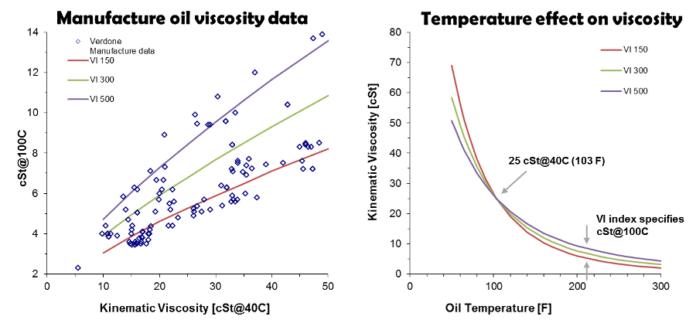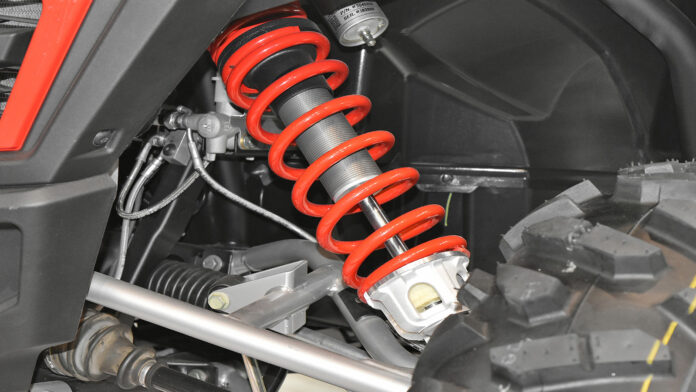Suspension fluids, often overlooked, are the unsung heroes of our vehicles. These fluids play a pivotal role in ensuring that our rides are smooth, comfortable, and safe.
Acting as the lifeblood of the suspension system, they absorb shocks and maintain the vehicle’s balance.
Their importance cannot be overstated, as they directly influence both the performance of the vehicle and the comfort of its occupants.
Understanding Suspension Systems

At its core, a suspension system is designed to support both road holding/handling and ride quality. It acts as a mediator between the road and the vehicle, absorbing the bumps and jolts from the road.
Suspension fluids work in tandem with this system, providing the necessary lubrication and ensuring that the movement remains smooth and controlled. Without these fluids, the suspension system would be prone to wear and tear, leading to a rough and uncomfortable ride.
Types of Suspension Fluids
There’s no one-size-fits-all when it comes to suspension fluids. They come in various types:
Conventional: Derived from crude oil, they are the most common and are suitable for general use.
Synthetic: Manufactured using advanced chemical processes, they offer superior performance and longevity.
Semi-synthetic: A blend of conventional and synthetic, they aim to provide a balance between performance and cost.
Each type has its unique composition and performance characteristics, catering to different needs and vehicle specifications.
Viscosity and Performance

Viscosity is a fundamental property of fluids, describing their internal resistance to flow. Think of it as the “thickness” or “thinness” of a fluid. In the realm of suspension fluids, viscosity isn’t just a technical term; it’s a determinant of performance.
The right viscosity ensures that the fluid can effectively lubricate the suspension components, safeguarding them against wear and tear. Moreover, it dictates how swiftly the suspension reacts to road irregularities. If the fluid is too viscous, it might not flow smoothly, hindering performance.
Conversely, a fluid that’s too thin might not offer adequate protection, posing safety risks. Thus, understanding and maintaining the correct viscosity is paramount for optimal vehicle performance.
Temperature Considerations

Temperature is a silent influencer in many processes, and its impact on suspension fluids is undeniable. Much like how our bodily functions adapt to temperature changes, suspension fluids undergo alterations in their viscosity based on the ambient temperature.
In the biting cold, a fluid can become excessively thick, slowing its flow and potentially hampering suspension responsiveness. On the flip side, sweltering conditions can render it too runny, compromising its protective capabilities.
Given these dynamics, it’s imperative for vehicle owners to choose suspension fluids tailored to their region’s climate and the temperature fluctuations they can expect, ensuring unwavering performance year-round.
Choosing the Right Fluid for Your Vehicle
The automotive world is vast and varied. From compact city cars to mammoth trucks designed for the harshest terrains, the spectrum is broad. Naturally, their suspension fluid requirements differ significantly.
A sedan zipping through city streets doesn’t face the same challenges as a truck navigating rocky paths. Factors such as the vehicle’s weight, its intended use, the frequency of its journeys, and the nature of roads it traverses all influence the ideal suspension fluid choice.
While the vehicle’s manual provides a starting point, seeking advice from experts or seasoned mechanics can offer tailored recommendations, ensuring that the chosen fluid aligns perfectly with the vehicle’s needs.
DIY vs. Professional Maintenance

The allure of DIY vehicle maintenance is strong, often driven by the satisfaction of hands-on work and potential cost savings. Changing suspension fluids might seem like a task within the realm of DIY. However, the landscape of modern vehicles is complex.
Advanced suspension systems, intricate components, and the need for precision make the task daunting for the uninitiated. Professionals bring to the table not just the right tools but years of experience.
Their trained eyes can spot issues that might escape the average vehicle owner, ensuring comprehensive maintenance and preempting potential problems.
Signs of Suspension Fluid Issues
Vehicles, much like humans, exhibit symptoms when something’s amiss. When it comes to suspension fluid health, certain telltale signs can indicate potential problems.
Experiencing a ride that feels stiffer than usual, noticing excessive bouncing even on relatively smooth roads, or hearing unusual noises emanating from the suspension are all red flags.
These symptoms aren’t just discomforting; they can be precursors to more severe issues that might compromise vehicle safety. Recognizing and addressing these signs early can avert more extensive damage, ensuring that the vehicle remains in peak condition and offers a safe, smooth ride.
Regular Maintenance Schedule

Vehicles, akin to living beings, thrive on routine care. Just as we benefit from regular health screenings, vehicles too need consistent check-ups. Adherence to a regular maintenance schedule, especially concerning suspension fluid checks and changes, can significantly extend a vehicle’s lifespan.
By following the manufacturer’s guidelines and ensuring timely fluid replacements, vehicle owners can ward off potential issues, guaranteeing that their ride remains smooth and responsive for years to come.
Step-by-Step Fluid Replacement
The process of replacing suspension fluids, while methodical, requires attention to detail. It’s not just about draining the old and pouring in the new. The system needs thorough cleaning to remove any residual old fluid or contaminants.
Depending on the vehicle’s make and model, the procedure might have specific nuances. Equally important are the safety precautions to prevent spills, injuries, or damage to the vehicle.
Using the right tools, following a systematic approach, and referring to the vehicle’s manual can ensure a successful and safe fluid replacement.
Premium vs. Budget Fluids

In the world of suspension fluids, the spectrum ranges from premium, high-performance products to more budget-friendly alternatives.
Premium fluids often boast advanced formulations, promising enhanced performance, protection, and longevity. In contrast, budget options might offer standard performance suitable for general use.
The decision between the two isn’t just about price; it’s about assessing the vehicle’s demands, driving conditions, and personal preferences.
While premium fluids might be ideal for high-performance vehicles or challenging terrains, budget options could suffice for regular city commutes. The crux lies in making an informed choice that aligns with the vehicle’s needs and the owner’s expectations.
Frequently Asked Questions
Can I mix different brands?
It’s advisable to stick to one brand and type to ensure consistent performance.
How often should I change fluids?
Refer to the manufacturer’s guidelines, but generally, it’s between 30,000 to 60,000 miles.
For more in-depth queries, always consult with professionals or refer to dedicated resources.







